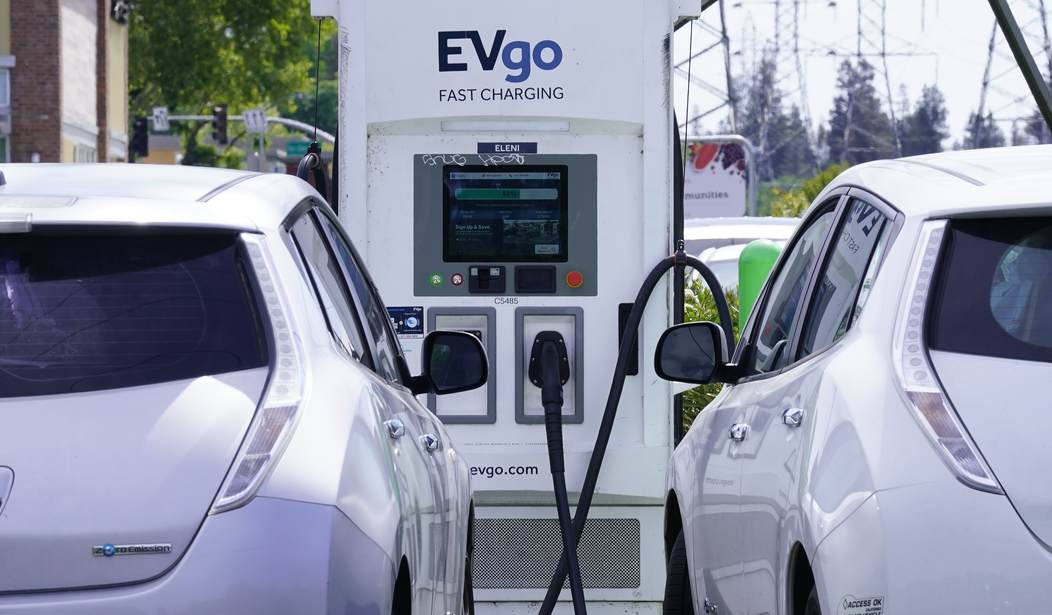For years, Electric Vehicles (EVs) have been heralded as the wave of the future. Quieter and smoother than gas-powered vehicles and possessing advanced features like instant acceleration, EVs also produce no carbon emissions during their consumer phase because they rely on electric batteries rather than internal combustion engines. For this reason, supporters believe EVs will soon dominate the market and be consumers' preferred mode of transportation.
While such a scenario could one day come to pass, it won't be without significant pushback from many Americans. American consumers increasingly balk at the high unit price and associated repair costs of EVs. They also remain unconvinced that EVs will ever be more convenient to own than traditional gas-powered vehicles.
It remains hard to envision such a future without the government putting its thumb on the scale in favor of EVs, as it has done in the past through a slush fund of subsidies and new manufacturing requirements. That is unfortunate because consumers deserve the opportunity to decide for themselves what vehicle makes the most sense for them, free from the political maneuverings of government and special interest groups.
While 43 percent of Americans report they are open to buying an EV in the future, only 12 percent are seriously considering the idea. A KPMB American Perspectives Survey published in May found that even if all cars were equally priced and had the same features, just one-fifth of consumers would choose to purchase an EV, or even a hybrid vehicle, over a gas-powered vehicle.
Despite Americans’ desire to help fight climate change, most are opposed to phasing out gasoline-powered vehicles and have little confidence that the U.S. will build the charging station infrastructure needed to make EV ownership convenient. Concerns are justified. Recent reports show that the Biden administration has only managed to build seven federally funded charging stations over the last two and a half years despite previously pledging $7.5 billion to expand the nation’s EV charging fleet.
Recommended
Recent surveys on the attitudes of EV owners themselves are even more revealing. Last month, McKinsey & Company published a shocking report that found 46 percent of U.S. EV owners said they are “very” likely to switch back to owning a gas-powered vehicle with their next purchase. When asked about their motivation, respondents cited barriers related to price, a lack of available charging stations, and concerns about adequate vehicle range. A quarter of respondents also stated that they had no way of charging their EVs at home.
Perhaps that is part of the reason why U.S. consumer demand for new EVs appears to be declining. According to a recent Cox Automotive report, in the first quarter of 2024, EV sales declined by 15 percent from the fourth quarter of 2023. Large numbers of Americans are not sold on the idea of EVs but that hasn’t stopped the government from trying to change their minds and force them to transition away from gas-powered vehicles.
At the federal level, the Environmental Protection Agency (EPA) recently finalized its new vehicle emissions standards rule, which aims to reduce carbon emissions by 0.3 billion tons between 2027 and 2055. The EPA believes the new rule will “accelerate” the nation’s transition to EVs, calculating that EVs could account for as much as 67 percent of all new light-duty vehicle sales and 46 percent of all new medium-duty sales by 2032. At the local level, states like California have passed legislation requiring all new cars, SUVs, and trucks sold in the state to be emissions-free by 2035.
Unfortunately, such rules and regulations are overly aggressive and undermine consumer choice. They are also poorly thought out.
The U.S. electrical grid is nowhere close to being able to handle the large amount of EV plugins that will be necessary to make this transportation revolution successful. As things stand, the nation’s largest grid operator has repeatedly warned that large sections of the U.S. are in peril of energy shortages and rolling blackouts. Therefore, forcing this transition prematurely could have disastrous consequences.
The truth is that while EVs have a place in the automobile market, they are far from being the dominant player or consumers' No. 1 choice. Consumers, not the government, should determine if, and when, they purchase an EV.
Nate Scherer is a policy analyst with the American Consumer Institute, a nonprofit education and research organization. For more information about the Institute, visit us at www.TheAmericanConsumer.Org or follow us on X @ConsumerPal

























Join the conversation as a VIP Member